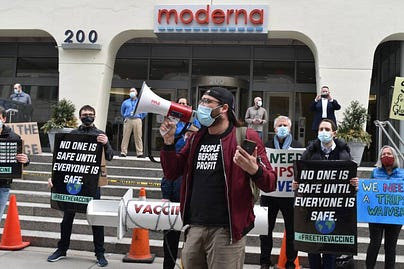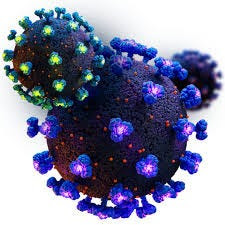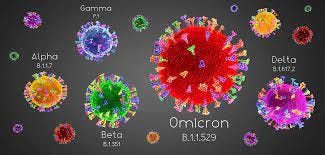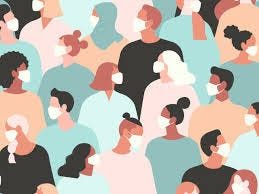What is a booster?
A booster is a vaccine given after the original series of vaccinations.
Why do we need it?
Much like other viruses, such as the flu virus, the virus that causes Covid-19 changes with time. In order to strengthen the immune system so that it responds to new varieties (variants) of the virus, the vaccine must be boosted, that is, a new vaccine, with a different response, to add to the body’s response.
You are eligible for the bivalent (updated) booster as long as it has been at least 2 months since your last Covid vaccine (whether part of the original series or an older, monovalent booster).
What are the benefits to you and others?
The new bivalent boosters increase the antibodies (virus fighters) in the body against one of the newest variants, such as the Omicron variant, as well as earlier variants. This makes it more likely that the booster can help the body fight off the infection. The Covid-19 vaccines cannot cause Covid.
Since the Covid-19 viruses change rapidly, scientists always have to try and stay ahead of the virus (like we try and do for the flu), guessing what the most widespread variants will be and designing boosters accordingly so that people don’t spread the virus as much. If you get vaccinated and do not get infected as a result, you cannot pass the virus on to others around you. Even if you do get infected despite the vaccine, it is likely that you will be infectious for a shorter period of time–and this too protects other people.
What are the downsides?
Any vaccine has downsides. They should be compared to the downsides of getting infected with the virus that causes Covid-19. Like other vaccines, the vaccine can cause side effects, like muscle soreness, malaise, and palpitations. The symptoms come from the body’s immune system going into action. However, these side effects cause much less harm and discomfort than Covid-19.
There are other ways to prevent people from getting infected and sick that should be used in addition to vaccines. They include “layers of protection” like quality masks and good ventilation. See PCDC resources on Ventilation, Masking and Layers of Protection at https://bej.gbh.mybluehost.me/resources/
Vaccines Can Protect People From Variants
The benefits of vaccination against many diseases have been astounding. Vaccines helped drive a 92 percent decline in cases of diphtheria, mumps, pertussis, and tetanus and a 99 percent decline in deaths. They led to 80 percent-plus declines in deaths from hepatitis A, acute hepatitis B, Hib (Haemophilus influenzae type b), and varicella (chickenpox). Vaccines have nearly ended the transmission of poliovirus, measles, and rubella here in the United States and smallpox worldwide.
Vaccines work by creating a memory of the virus in the body’s immune system. When the body is infected by that virus, the immune system remembers and attacks it. Vaccines are not perfect, however. Many viruses develop variants (changes) that the immune memory doesn’t recognize.That’s why we need to get a new influenza vaccine every year, which only 60% of the time matches up with the seasonal strains circulating. COVID-19 is creating new variants at a rapid rate.
Vaccines are available to protect people from Covid-19. People received two vaccines followed by one or two booster shots. There is now another “bivalent” booster that was designed to protect people from some of the more recent variants. It should be pretty effective, though the virus does continue to mutate. We discuss variants in the next section.

One problem is that many poorer countries don’t even have enough of any form of COVID-19 vaccines due to drug company profiteering. This means lots of people who could have been protected in those countries get sick and die. It also gives the virus many more opportunities to mutate to form dangerous variants—which then spread rapidly across the world.
What is a Variant?
The coronavirus is a virus that causes Covid-19 disease. Viruses are tiny particles that live by growing and multiplying within an animal or person. They cause symptoms in someone’s body either by killing some of the body’s cells or by causing an antibody response that itself is damaging. COVID-19 usually does both.

When viruses enter the body, they grow and enter cells in your body, turning them into factories to produce more viruses, killing the cells in the process. (In HIV, they destroy immune white blood cells that protect our bodies from disease.) During this process, they can make changes in their genetic material, called mutations. New versions of viruses with mutations are called variants.
What Are Covid-19 Variants?
There are many Covid-19 variants, most of which infect few if any people. Others are versions of the virus that spread faster and cause more disease. They also can change how effective current vaccines are. The World Health Organization, the W.H.O., names each one using Greek letters, such as delta, omicron, and alpha. Within each variant, sub-variants develop and are named with letters and numbers. A sub-variant is really just a variant that is a descendant of another variant.

Since viruses multiply quickly within a person’s body, an enormous number of variants are formed, but most die out quickly. Those that survive and that seem most threatening are called “variants of concern.”
Scientists track the arrival of new variants. As of November 2022, they predict that newer variants are likely to cause a surge in Covid-19, especially if people don’t protect themselves and each other.

See the People’s CDC for more information at www.peoplescdc.org
